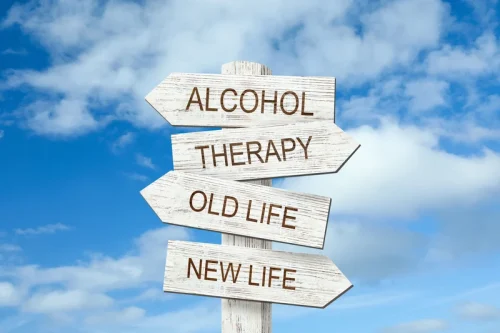
However, no studies have shown that consuming chia seed water can reduce the risk of heart disease, neurological disorders, or other diseases causing inflammation. People who take certain medications or those who have bleeding disorders or other health conditions may need to avoid natural blood thinners. If you have any health condition or take any medications, talk with a healthcare provider before taking natural blood thinners. People taking anticoagulants and antiplatelets should work with a healthcare provider to determine how much vitamin K is safe to consume. Vitamin K is found in leafy greens, other foods, and some supplements.
- Acting as a blood thinner, alcohol can then also lower the risk for a stroke, which is when there is a reduced flow of blood to the brain due to blocked or narrowed arteries.
- Also, if you’re taking other supplements or medications, you may need to space your doses out to avoid potential interactions.
- Alcohol should be limited while using Effient, especially among older adults.
- Ask about foods and other medications — including drugs you buy without a prescription and herbal supplements — that can interfere with how the blood thinner works.
- Some people with certain medical conditions, such as congenital heart defects, need blood-thinning medications to reduce their risk of heart attack or stroke.
- There is very little evidence confirming any direct effects of chia seed water on weight loss.
Blood Thinners for Heart Disease
Because of its potential effects on bleeding, people should stop taking aloe at least 2 weeks before having surgery. According to one case report, one person who was taking very high doses of feverfew (800 mg, three times daily) experienced vaginal bleeding and a longer menstrual cycle. Cayenne pepper also contains salicylates, and some people say including it in food can help with blood-thinning. However, reliable scientific evidence has not shown it has blood-thinning qualities. A 2015 literature review notes that it may do this by reducing thromboxane, a hormone that causes platelets to aggregate, or stick together. Ginger also contains salicylates, the same substances that give aspirin its blood-thinning properties.
Types of Drug Interactions With Alcohol
The above review noted that low to moderate alcohol consumption can decrease platelet activation and aggregation, meaning it may reduce blood clotting in a similar way to blood thinning medications. It’s important you don’t them instead of or with your prescription blood thinner and other medications without first talking to your doctor. U.S. dietary guidelines define a moderate, low-health-risk alcohol intake as one drink or less per day for women and two or less for men.

How can I thin my blood naturally?
Get your blood checked often if you’re on warfarin or heparin. Your doctor will test you with an international normalized ratio (INR) test. You should be very careful when you’re taking blood thinners and doing things that could cause any type of injury.


A person should also speak with a doctor or access online support if they have concerns that they or someone they know may have AUD. Therefore, a person should not drink alcohol instead of taking blood thinning medications as a doctor has prescribed. Additionally, the authors discussed older studies that suggested binge drinking can cause temporary increases in blood pressure.
What Else Raises Blood Pressure?
Even a minor cut may bleed a lot if you’re on these medications. Call your doctor if you can’t eat for several days, or you’re vomiting or you get diarrhea that lasts more than a day. You may not have the right amount of medicine in your system. Li said she generally tells people not to drink more than two or three times per week.

Signs and symptoms
- Some people worry about bruising while taking blood thinners.
- Sprinkle 1 or 2 tablespoons into your favorite yogurt or cereal.
- You may need a dose adjustment in addition to testing of your prothrombin time (PT) or International Normalized Ratio (INR).
- Studies have also shown that drinking large quantities of alcohol in one sitting or even a single drink a day can raise blood pressure.
- Someone using alcohol while taking Brilinta should speak with their doctor about the risks that are specific to their situation.
ALA has also been found to have antiarrhythmic effects, which can reduce or prevent a fast or irregular heart rate. If you find yourself with chronic pain, you may also have high blood pressure. Learning to manage your pain-related high blood pressure is important to prevent any other further health complications.
Regardless of the type of blood thinner being used, you should generally avoid alcohol while taking a blood-thinning medication. The actual risks to a particular individual are very case-specific and should be discussed with a doctor. This can help them determine if something is causing an interaction that could lead to serious bleeding. Their mechanism of action isn’t affected by alcohol consumption. It’s relatively safe to consume alcohol as long as you’re in good overall health and have confirmed with a healthcare professional.
- If you accidentally miss a dose of your blood thinner, ask your doctor what you should do.
- Eliquis can cause serious, life-threatening, or even fatal bleeding.
- Lastly, he obtained graduate education in public health and business administration to contribute to national healthcare reform research and implementation.
- Traumatic injuries are one of the most common causes of bleeding, but sometimes you can bleed spontaneously.
While it could certainly make blood less viscous, its effect on the heart isn’t known (though its effect on the kidneys certainly is!). It’s possible drinking more water could be good for the heart and circulation; it’s equally possible that something other than water drinking was at work here. Other medicines and supplements, including over-the-counter ones, can interfere with these drugs. Tell all of your doctors, including your dentist, that you’re taking a blood thinner. Don’t start any new medicines or supplements without talking to your doctor first.

According to the above review, daily drinking of significant amounts of alcohol can increase platelet aggregation and reactivity, meaning it may increase the risk of blood clots. Blood thinners are medications does drinking make your blood thinner given to people with a high risk of dangerous levels of blood-clotting. There is much research on the benefits of omega-3 and omega-6 fatty acids for inflammation and inflammation-related disorders.
Leave a Reply